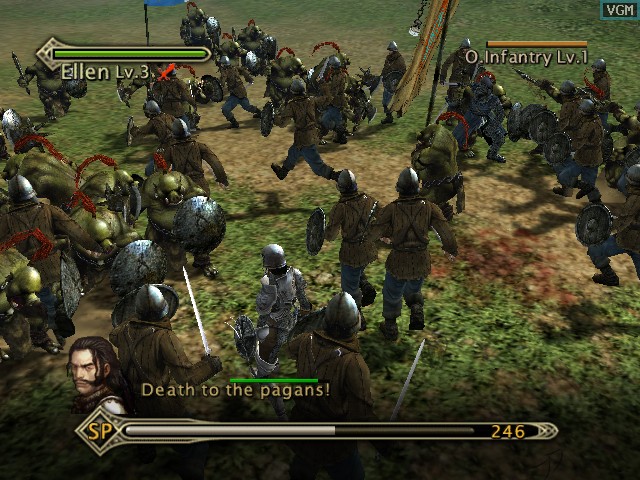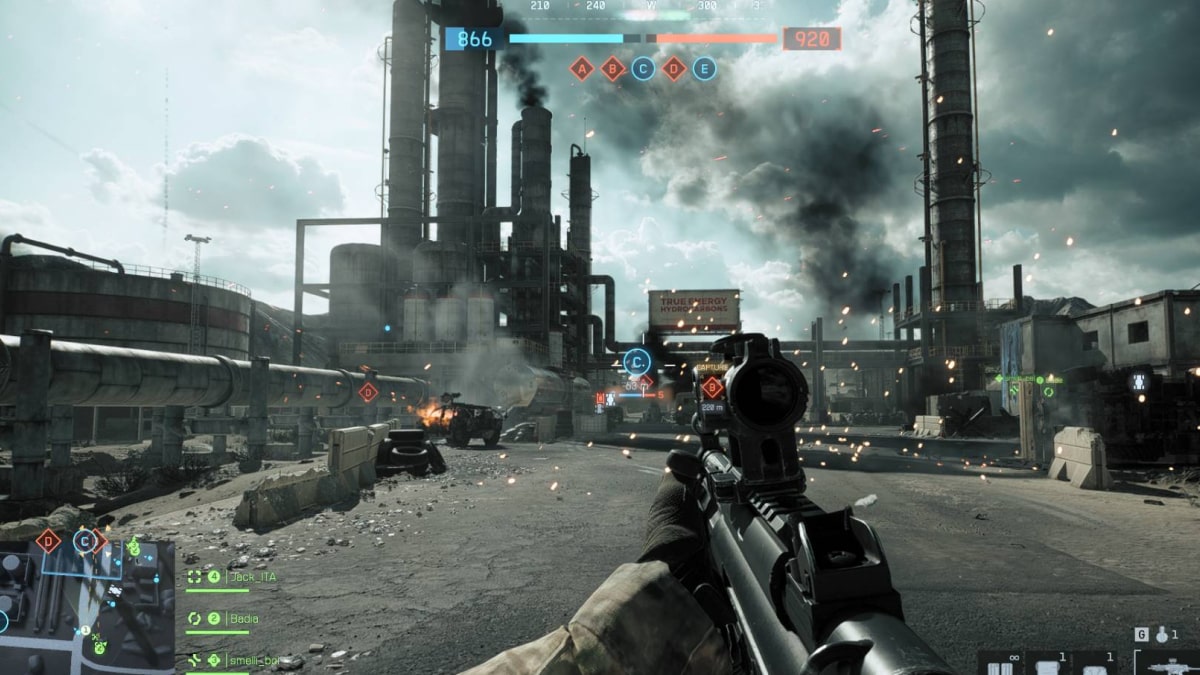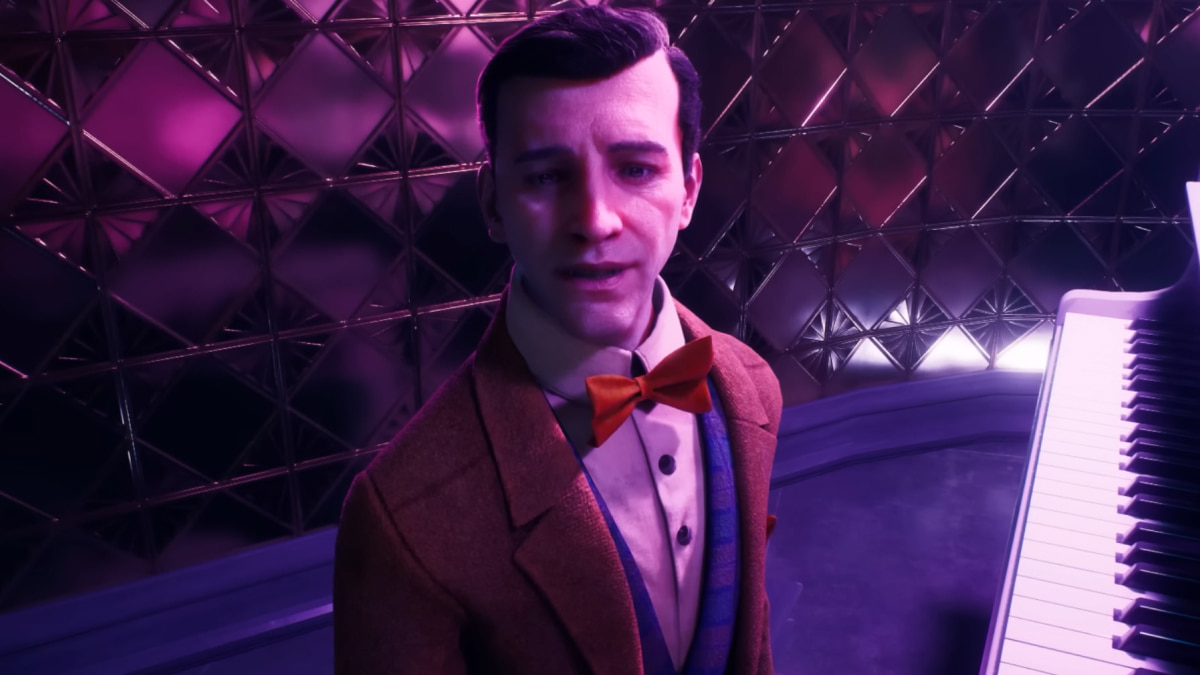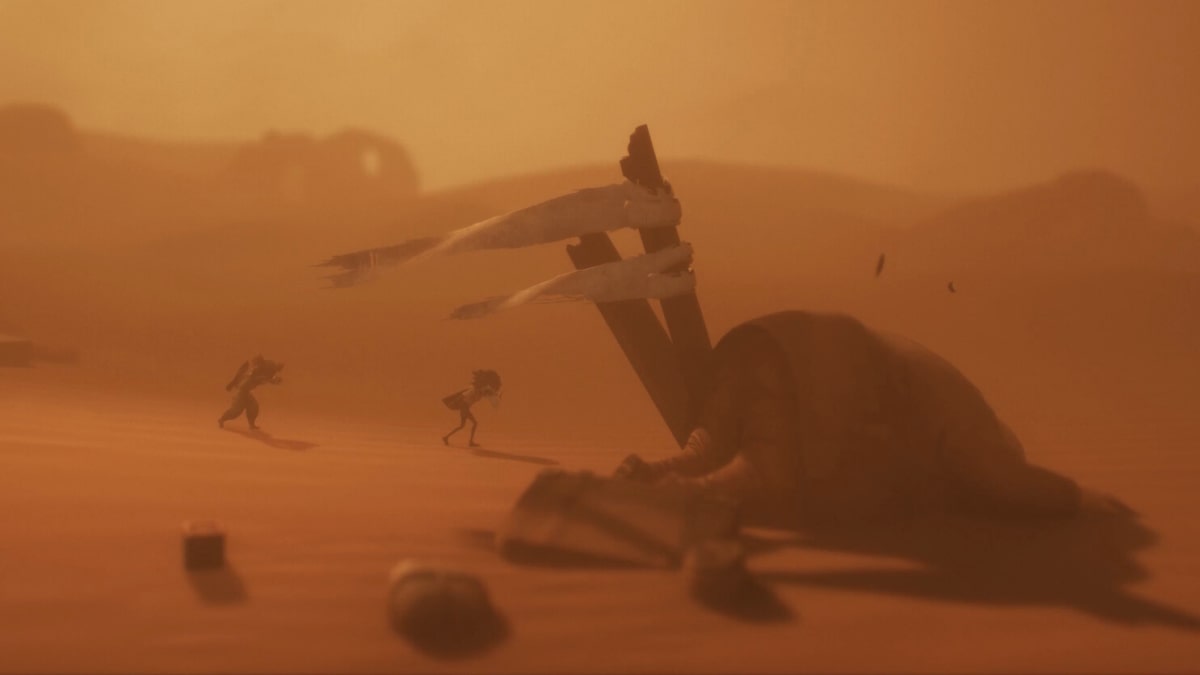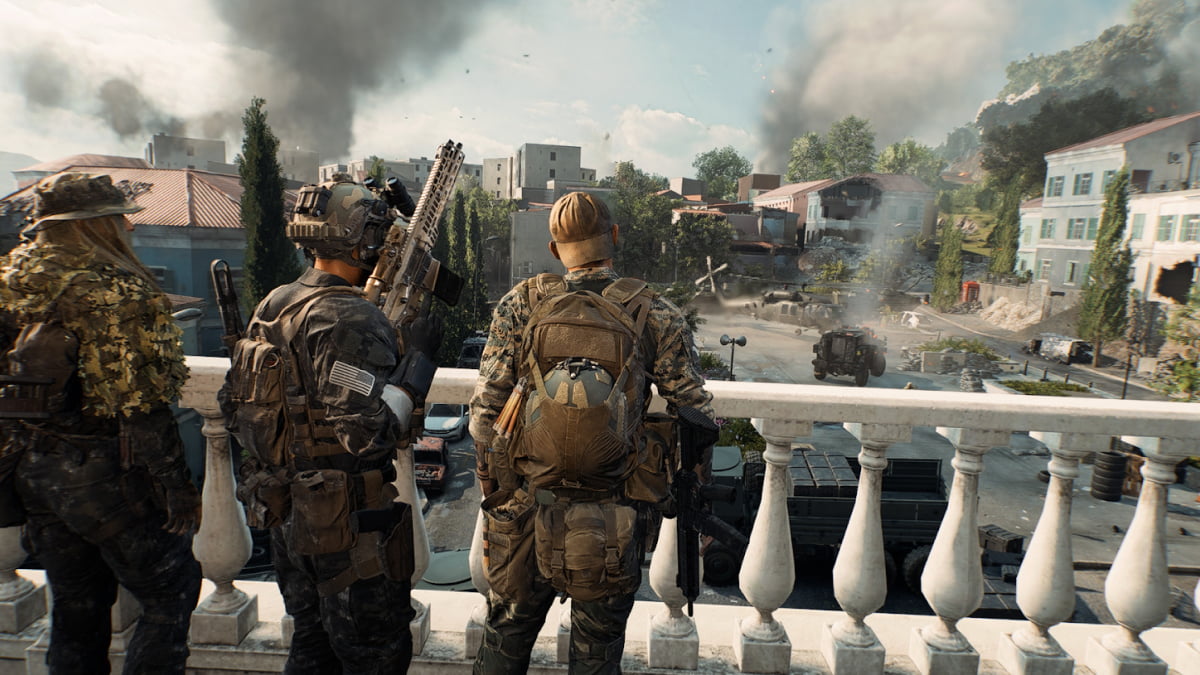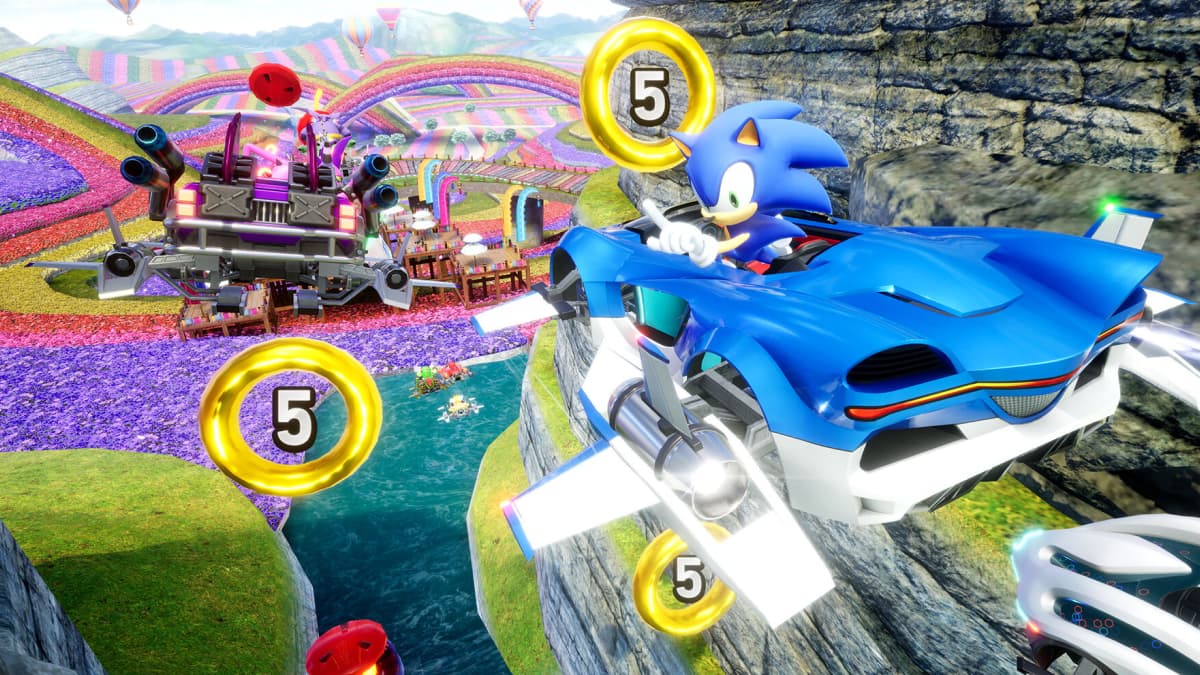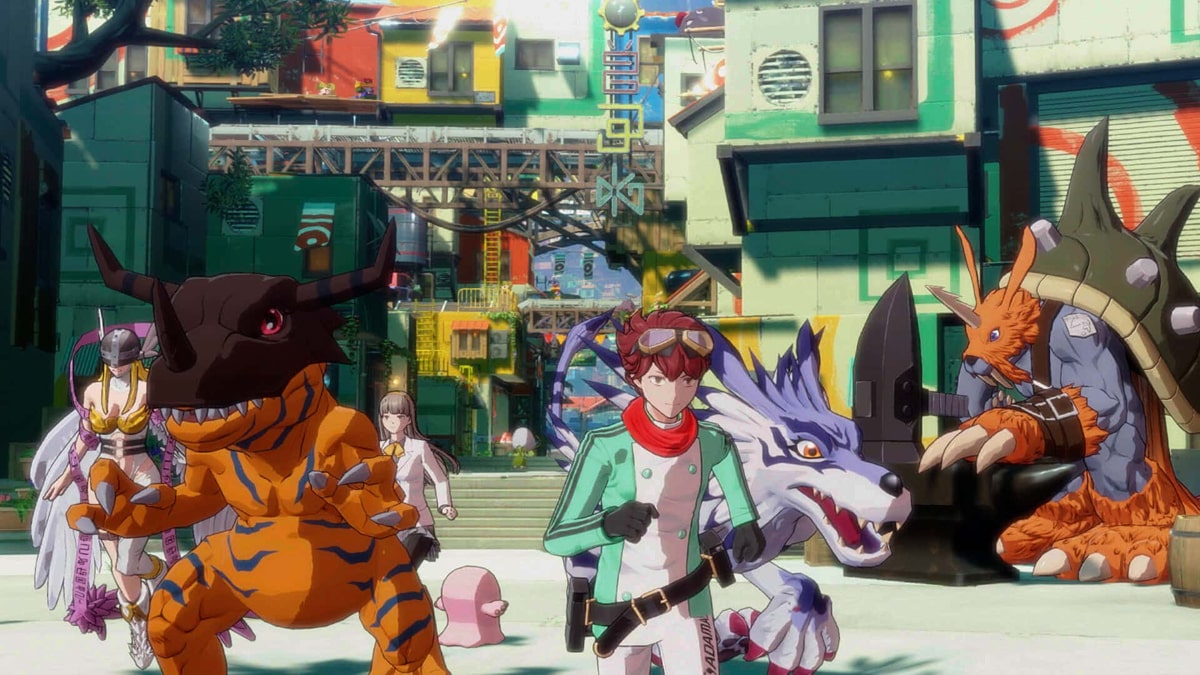You can trust VideoGamer. Our team of gaming experts spend hours testing and reviewing the latest games, to ensure you're reading the most comprehensive guide possible. Rest assured, all imagery and advice is unique and original. Check out how we test and review games here
Okay. I want to get this out of the way immediately so that we can concentrate on the rest of this review, as many people may just look at the box and dismiss it as a clone of that game. That would be wrong, as it is much deeper than that, so take heed: Kingdom Under Fire: Heroes (the follow-up to last year’s The Crusaders) is in no-way comparable to Dynasty Warriors. Such a comparison is unfair on Heroes, which is so much more than Koei’s efforts that it doesn’t need mentioning again, ever. Understood? Good. In fact, you can’t accurately categorise what Heroes is, but I can tell you that it is a sublime blend of RTS and hack-and-slash action, with some RPG elements tossed in for good measure.
Heroes takes place in the troubled land of Bersia, where a group of Half Vampires led by the ruthless Valdemar have united the Dark Elves and established the kingdom of Vellond. In doing so it became the first Dark Elf nation (albeit one that wasn’t ruled by the Dark Elves themselves). Still craving power, and aware of the need to concentrate the minds of his new subjects on something other than rebelling against him, Valdemar invaded Arein (home of the Elves). He also attempted the annexation of Hexter (land of the Orcs and Orges), by supporting the most ambitious (but under strength) Hexter tribe. Soon, as tribes began to either assimilate into Vellond or resist, sufficient numbers of anti-Vellond supporters formed and a bitter civil war commenced. Never ones to miss out on a scrap, the Humans observed from afar, but it wasn’t long before they too entered the fray, and it’s just prior to their entrance that Heroes starts.
You will experience the war through the lives of seven protagonists (each having a campaign of their own) with each offering a different perspective on the conflict. The plot progresses in a similar fashion to its older brother, through the use of talking-head scenes and the occasional in-engine cutscene – an FMV-orgy this is not. That hardly matters though, as – much like The Crusaders – Heroes is like a big-budget action movie, where brief exposition is only used to link each set-piece. Some may think that there is a biting social commentary on how various races loathe each other for no good reason (much like the world today) instead of just getting along, but that is for someone with far more time to analyse than me. It’s a game where you’ll listen to play, rather than play to listen; it is very much about the playing.
Heroes is not like ordinary hack-and-slash games, even without taking account of the RTS and RPG aspects. Indeed, whether you even think what Heroes offers are true RPG stylings depends on what you believe role-playing in videogames to actually mean, but suffice to say it has levelling-up of your army, which for many is good enough to qualify. But Heroes is different; it’s not a game that can easily be categorised with a glib sound bite. For starters, on the battlefield you will only directly control the eponymous hero of the campaign you are in, despite having a number of troops fighting by your side. Also, your hero cannot die, merely be dazed once your health is depleted, leaving you powerless for the few seconds it takes until it is replenished. You don’t have complete freedom of movement, either, at least not in the normal sense. Instead, all movements over distance are controlled in RTS-fashion through the mini-map. The biggest differentiator, though, is that you probably could complete much of the game without ever directly taking command of your hero at all, and play it simply as an RTS/RPG hybrid. But where would be the fun in that?
Assuming you do choose to take to the lush battlefield yourself to complete your tasks (which could be any combination of base/unit defence, escort, sieges or pure kill-everything missions) you’ll find that you’re able to slice and dice away using a variety of light/heavy strikes, combos and special moves, such as magic or sidekick abilities. The game engine is sufficient to chuck enough enemies about to make for a pretty big scrap, to the point where sometimes seeing yourself or the enemy (where fights occur against similar troop types) can be a little hard. Audio cues play a part, too, alerting you to incoming fire, or the clank of armour on a distant foe. Mixed with the actual clattering of steel against bone, and you do feel like you’re on a battlefield, cheering with your men when evil is defeated. It does have a terrible ‘nu-rawk’ soundtrack, though, which is much more noticeable than in The Crusaders. Still, at least that can be turned off, and should the somewhat patchy voice acting grate, then you can switch to one of the four other voice dubs.
It isn’t all about third-person fighting, though. Whether you control your hero or not, all other troops in your army can only be utilised using the standard RTS convention of selecting a place or enemy unit and letting them go there to fight/lay traps or wait. They’ll fight to the death, too – there is no AI that tells them to retreat, meaning it is down to you to manage them accordingly. To counter the effect of the hero essentially being invincible, the rest of your army is not. Whilst other troops are expendable (to a degree, although it is in your interests to keep them alive), should the unit attached to the hero die, then it is game over. This does mean you have to be careful about when to send your own unit into battle and when to retreat to heal; it adds a further tactical element to proceedings, as the ability to do a ‘Rambo’ and try to do it all yourself is never really an option.
In order to make progress in Heroes you need to be able to think like a commander. You need to be able to see trouble ahead and adapt to it in the blink of an eye. You need to be a fire-fighter extraordinaire, as your situation will often change throughout a mission; rarely do you have a comfort zone to fall back into. Indeed, the most successful way to play the game is to dip in-and-out of the third-person action whilst organising the rest of your troops into an effective team. You’ll therefore find that you are maybe taking care of a particularly nasty adversary directly with your hero, then using the mini-map to organise an ambush by your archers, whilst ordering your cavalry to mop-up what is left. It is the fact that Heroes rewards real tactical play that makes it so captivating.
Take, for example, height providing a bonus for archers: some RTS games offer this advantage, which confers greater damage from arrows the higher they are fired from. Heroes incorporates not only this, but sunlight, too; organise your archers to have their backs to the Sun when firing, and the enemy will be blinded when looking up at the fast-approaching hail of arrows heading their way, taking additional damage. Or maybe you have a large army hiding in the woods? No problem. Use fire arrows to set the trees on fire, either killing them all or flushing them out into your mortar fire or onto a selection of traps you’ve set. It’s the little touches like this that exude the thought Blue Side Studios has put into the game.
In between the various missions you’ll be able to use the experience and gold acquired during battles to upgrade not only your hero’s abilities, but those of your army, too. You can buy armour, weapons and magic items, all offering various boosts to stats and abilities, or change the class of a unit or add magic spells to their repertoire. Time will need to be spent here to ensure that you maximise the potential of your army; a small number of specialised units will be better than a smattering of jack-of-all-trades. This section is no longer as punishing as was the case in The Crusaders, either. In that title, a badly thought-out army could mean that completion was nigh-on impossible, as you could never amass enough experience to fix a unit that you found to be less effective. So, in one of those ‘Why didn’t they think of that sooner’ moments, you can now return a unit to its default status and receive all spent experience points back, allowing you to start over. Simple, but incredibly useful. Or, if you have enough money, just hire a mercenary. But it’s nice to have to option to undo mistakes.
In addition to the generous campaign mode, Phantagram beefed-up and provided a more well thought-out Xbox Live component (something that was sadly not given much TLC in The Crusaders), offering Hero battles, defence against hordes of AI attacks, or all-out 3-vs-3 war, plus the ability to upgrade troops, should you survive to fight another day. The whole package will certainly keep you occupied for a long time, although that can, in part, be attributed to the difficulty curve (which is almost vertical at times), even in the opening campaigns. Much like The Crusaders before it, Heroes is hard. Many may never get passed the initial campaigns required to unlock the harder areas of the game (appropriately rated Very Hard, Nightmare and Hell). In some ways it’s as though Phantagram decided to make this game for only those who managed to complete The Crusaders, as a rite of passage, and who wanted something tougher to keep them up at night. The feeling that you aren’t liked very much sometimes kicks-in when you’re replaying the same mission for the nth time, cursing the lack of a mid-mission save.
In spite of that, though, quibbles are minor. Sure, it can sometimes be hard to find the ‘correct’ way to approach a mission, or frustrating that there is no in-game pause to consider your options (although you can appreciate this is to keep things hectic and immerse you in the heat of the battle – or maybe they just couldn’t be bothered to implement it). But Heroes is a suitably different and a well-crafted package, pushing the Xbox for all it’s worth, and successfully integrating a trio of gaming elements to form a challenging and cohesive whole. It’s a game that is constantly pushing you to improve, where you really will start to think up new tactics on the fly as you play through it. If broken apart into its separate components it’s true that none of the individual elements would stand at the top of their respective genres, but that isn’t really the point. Mix them all together, though, and you have something special.
Kingdom Under Fire: Heroes
- Platform(s): PC, Xbox
- Genre(s): Action, Real-time, RPG, Strategy
/https://oimg.videogamer.com/images/05fd/kingdom_under_fire_heroes_4.jpg)
/https://oimg.videogamer.com/images/a301/kingdom_under_fire_heroes_35.jpg)
